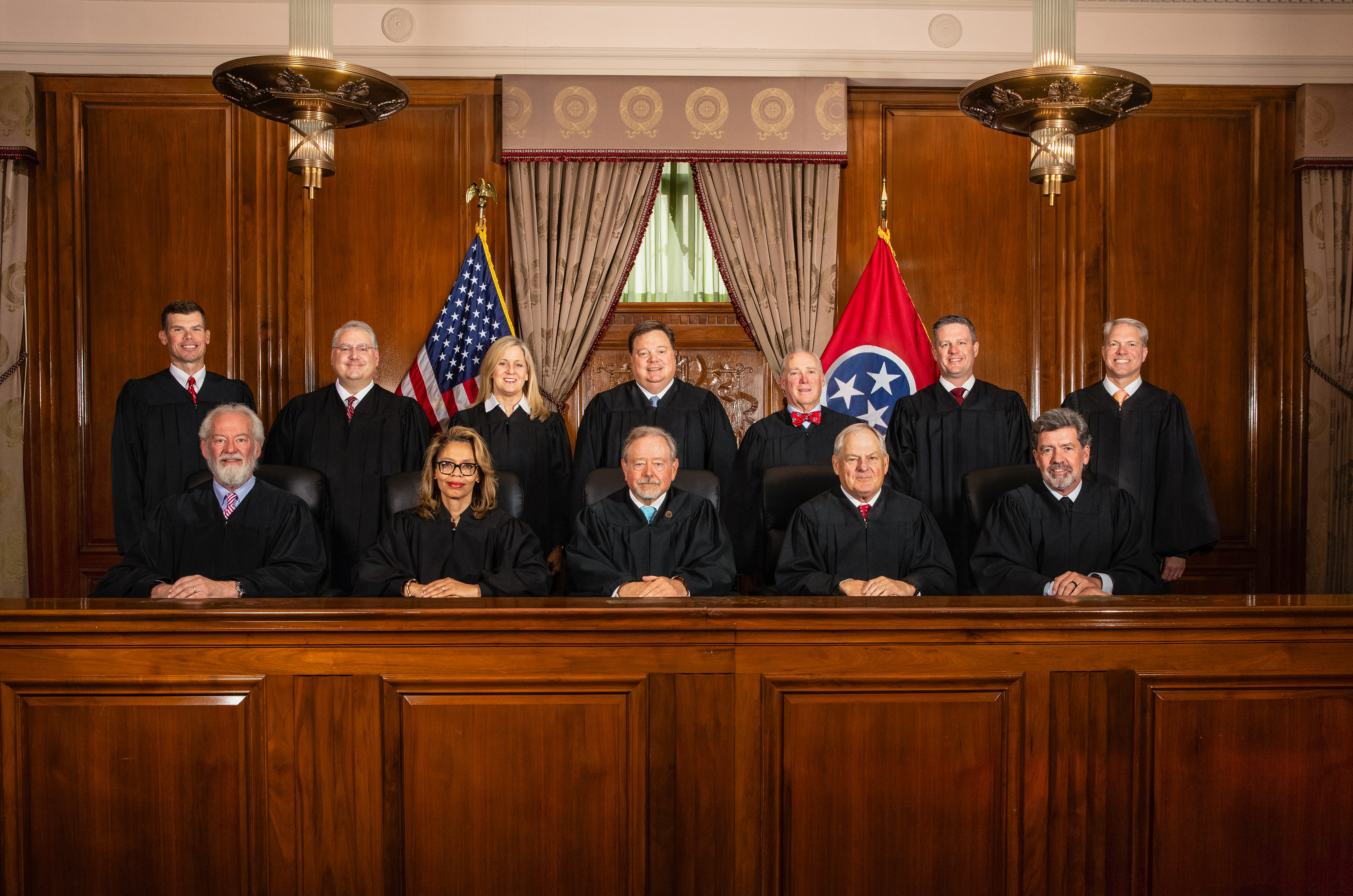
Back Row (L-R): Judge Matthew Wilson, Judge Tom Greenholtz, Judge Jill Bartee Ayers, Judge J. Ross Dyer, Judge John W. Campbell, Judge Kyle A. Hixson, Judge Steven W. Sword, Front Row (L-R): Judge Robert H. Montgomery, Judge Camille R. McMullen, Judge Robert W. Wedemeyer, Judge Robert L. Holloway, Jr., Judge Timothy L. Easter
The Court of Criminal Appeals was created by the legislature in 1967 to hear trial court appeals in felony and misdemeanor cases, as well as post-conviction petitions. The Tennessee General Assembly increased the membership of the court from nine to 12 on Sept. 1, 1996.
The members sit monthly in panels of three in Jackson, Knoxville and Nashville. They may also meet in other places as necessary.
All Court of Criminal Appeals decisions may be appealed to the state Supreme Court by permission, except in capital cases, which are appealed automatically. No witnesses, juries or testimonies are present in the Court of Criminal Appeals. Instead, attorneys present oral and written arguments.
Court of Criminal Appeals judges are elected on a “retain-replace” ballot every eight years.
